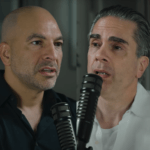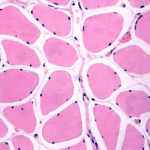It’s been more than 2 months since the New England Patriots won the Super Bowl and I’m sure there are a non-trivial number of people that might not want to hear a Pats fan lament about what could’ve been, but bear with me, please.
This article from ESPN about Aaron Hernandez broke my heart. It notes that the Boston Globe published an investigative series of six articles that revealed the former tight end for the Pats, who killed himself in prison in 2017, was sexually and physically abused as a young boy, among other traumatic events.
I spoke about some of the lasting effects that a traumatic childhood can have in episode #15 of the podcast with Paul Conti, a psychiatrist, and one of the most knowledgeable people I know on this subject.
I am not suggesting that Aaron’s crime, the murder of Odin Lloyd, which took him to prison, is just a byproduct of trauma. Most people who were abused as children never go on to do such things. His actions were far more likely the proximate result of the lack of boundaries placed around him over the course of his life—a feeling of entitlement that comes from repeated free passes—but at the root, it’s hard to imagine his childhood did not play some role. In fact, I imagine the fraction of people incarcerated for violent crimes who have been traumatized as kids are probably much higher than we’d care to admit. How would Aaron’s life have turned out had he not been abused?
Emotional trauma can have a big impact on our lives, and it’s often insidious, showing no overt signs of pathology. Yet, overcoming it might be one of the most powerful things we can do to improve the quality of our lives.
– Peter





